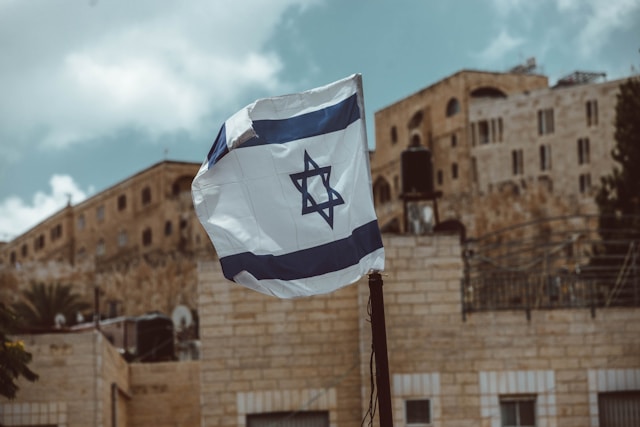Fadi Jihad Muhammad Al-Wadiya, a senior member of Palestinian Islamic Jihad responsible for missile development, is killed in an Israeli airstrike in Gaza City
In a targeted airstrike on Tuesday evening, the Israel Air Force (IAF) successfully eliminated Fadi Jihad Muhammad Al-Wadiya, a prominent figure within Palestinian Islamic Jihad (PIJ) known for his role in advancing the organization’s missile capabilities in Gaza City. The operation, conducted under the oversight of the Southern Command and Intelligence Directorate, aimed at neutralizing Al-Wadiya, who was located in a specific area of Gaza City at the time.
Al-Wadiya’s expertise in electronics and chemistry significantly contributed to PIJ’s weapons development, specifically in enhancing their rocket array. The Israeli Defense Forces (IDF) justified the strike, citing Al-Wadiya’s integral role in perpetuating terrorist activities that posed direct threats to civilian lives in Israel and the Gaza Strip.
Embed from Getty ImagesHowever, the airstrike also resulted in collateral damage, including the deaths of five individuals near a Médecins Sans Frontières (MSF) clinic. MSF, an international medical humanitarian organization known as Doctors Without Borders, swiftly condemned the incident, expressing outrage at the loss of their “colleague” and denouncing what they termed as an attack on humanitarian principles.
In their statement on social media, MSF International criticized the IDF’s actions, emphasizing the humanitarian cost of military operations in densely populated areas like Gaza. They accused Israel of disregarding civilian safety and called for accountability over the casualties inflicted during the strike.
In response, the IDF defended its actions, asserting that Al-Wadiya’s status as a high-profile terrorist made him a legitimate military target. They countered MSF’s condemnation by highlighting Al-Wadiya’s role in PIJ and accusing terrorist groups in Gaza of exploiting civilian locations, such as the vicinity of MSF facilities, as shields against military operations.
The exchange between MSF and the IDF underscores the ongoing tensions and ethical dilemmas surrounding military engagements in conflict zones, particularly concerning civilian casualties and the responsibilities of armed forces under international law.
Analysis:
Political Perspective: The targeted killing of Al-Wadiya by the IDF reflects Israel’s proactive stance against militant threats emanating from Gaza, particularly from groups like PIJ. Politically, the strike underscores Israel’s commitment to preemptive measures against individuals deemed responsible for orchestrating attacks against its civilian population. However, it also raises questions about the broader implications for regional stability and the potential for escalating violence in the Israeli-Palestinian conflict.
Social Perspective: MSF’s condemnation of the airstrike highlights broader societal concerns regarding humanitarian principles and the protection of civilians in conflict zones. The organization’s role in providing medical assistance impartially amidst conflict underscores the ethical dilemmas faced when humanitarian operations intersect with military actions. The incident amplifies debates on the ethical conduct of warfare and the need for stringent adherence to international humanitarian law to minimize civilian harm.
Economic Perspective: From an economic standpoint, military operations in Gaza, such as airstrikes targeting militant leaders, impact civilian infrastructure and economic activities. The destruction caused near MSF facilities could disrupt humanitarian aid efforts and exacerbate socio-economic challenges in an already volatile region. The economic repercussions of such military actions underscore the complex interplay between security imperatives and humanitarian considerations.
Racial Perspective: The racial dynamics in the Israeli-Palestinian conflict are often framed within broader geopolitical contexts rather than explicit racial categorizations. However, the impact of military operations on predominantly Palestinian communities, including civilian casualties and displacement, raises issues of ethnic identity and discrimination within the context of armed conflict. The targeting of militant leaders like Al-Wadiya intersects with narratives of national security and ethnic tensions, shaping perceptions and responses both domestically and internationally.
Gender Perspective: While not explicitly gender-focused, the implications of military operations on women and vulnerable populations in Gaza are profound. MSF’s presence in the region underscores the critical role of gender-sensitive humanitarian assistance amid conflict, addressing specific health and protection needs of women and children affected by violence. The targeting of Al-Wadiya and the resulting casualties prompt considerations of gendered impacts and the differential vulnerabilities of populations in conflict zones.
